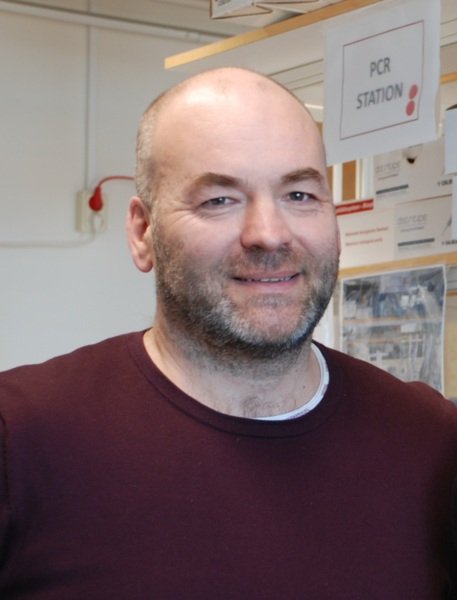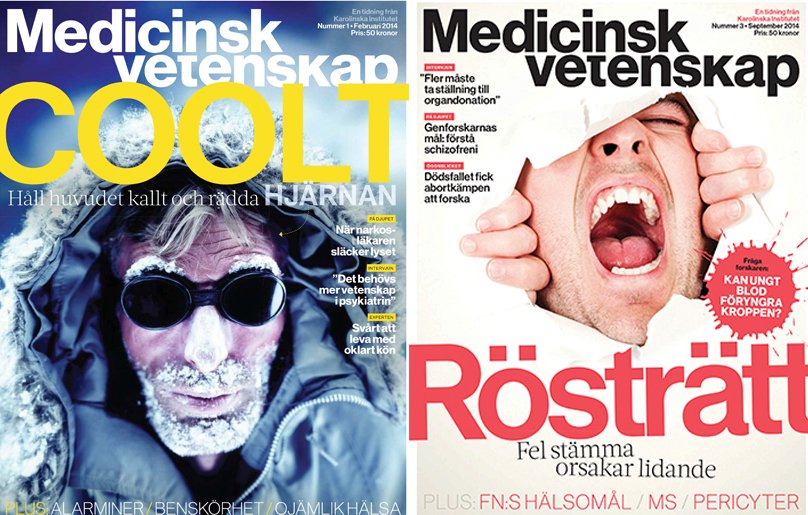“We want to transplant healthy immune cells to the ALS brain”
Bob Harris is a Professor of Immunotherapy in Neurological Diseases at the Department of Clinical Neuroscience at Karolinska Institutet. He has a wild idea about how to stop ALS – empty the brain of immune cells and put in new ones.

Text: Fredrik Hedlund, first published in Swedish in Medicinsk Vetenskap No 2/2019.
What is your research about?
“We are interested in a type of immune cells in the brain called microglia. In the rest of the body they are called macrophages, but in the brain they are microglia. They handle a lot of basic functions, they clean up waste and eat a few bacteria if they should enter the brain. You could say that they make sure the other cells are doing well. But in neurodegenerative diseases such as ALS or Alzheimer’s disease, they stop functioning as they should. In the case of Alzheimer’s, they stop cleaning, and with ALS they go bad and start attacking the motor neurons. We think that ALS is an immunological disease, or that these cells have somehow become stuck in negative functions.”
How far have you gotten?
“We have been able to prove that a molecule called TGF-beta is really important for the function of the microglia. It acts as a calming signal to all of these macrophages and microglia all around the body. One of our hypotheses is that there is something wrong with the receptors on the microglia that are intended to receive the TGF-beta signal.”
How do you intend to solve it?
“We can imagine several ways. One is to add TGF-beta, but it is very short-lived, and if there is something wrong with the receptors of the microglia, it will do no good. We can remove the sick microglia from the brain, but they are quickly replaced by new ones with the same defect. So instead, we now want to replace the sick cells with healthy ones in mice. Transplanting healthy microglia to the brain should stop the entire ALS process. We have previously managed to stop type 1 diabetes and MS in the mouse models by transplanting macrophages. Everyone said we were crazy, but it worked. In five years, we will know whether or not this worked.”

The magazine Medical Science
The magazine Medical Science (Medicinsk Vetenskap) is published by Karolinska Institutet and targets the general public interested in medical science.
